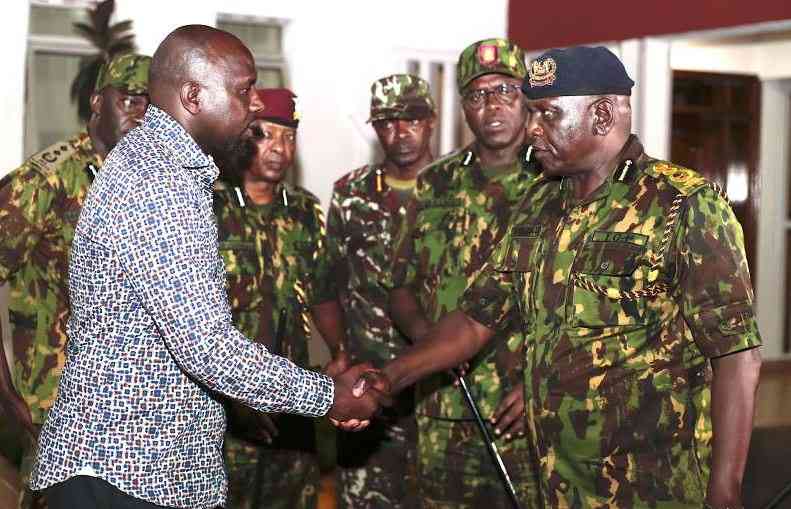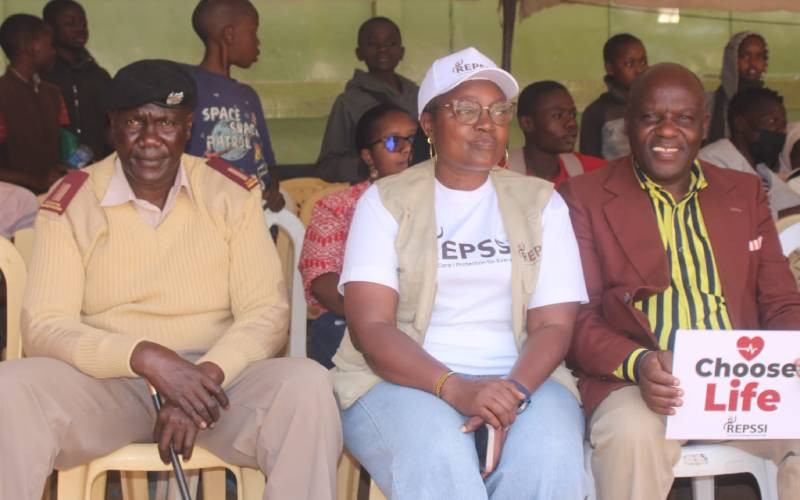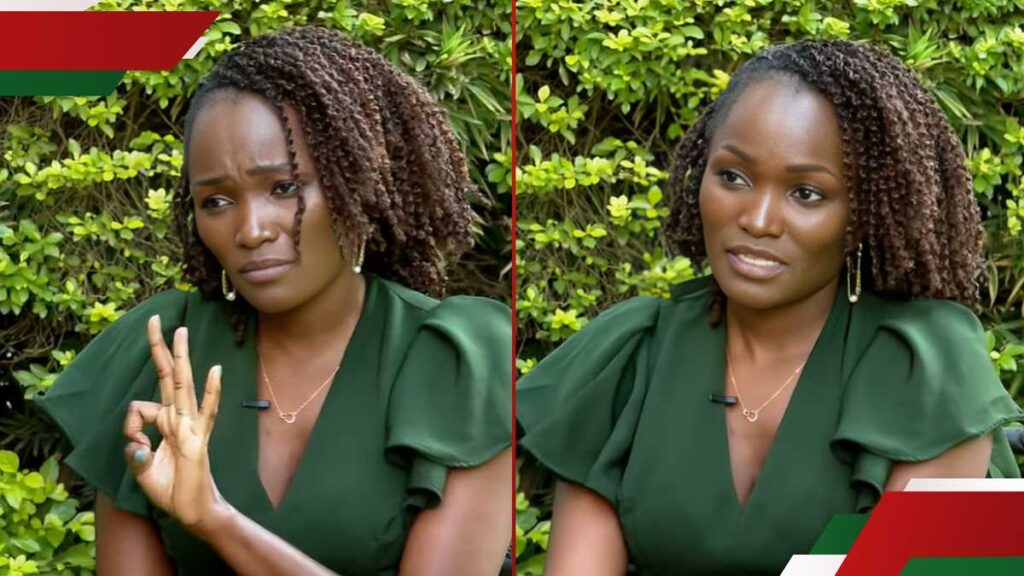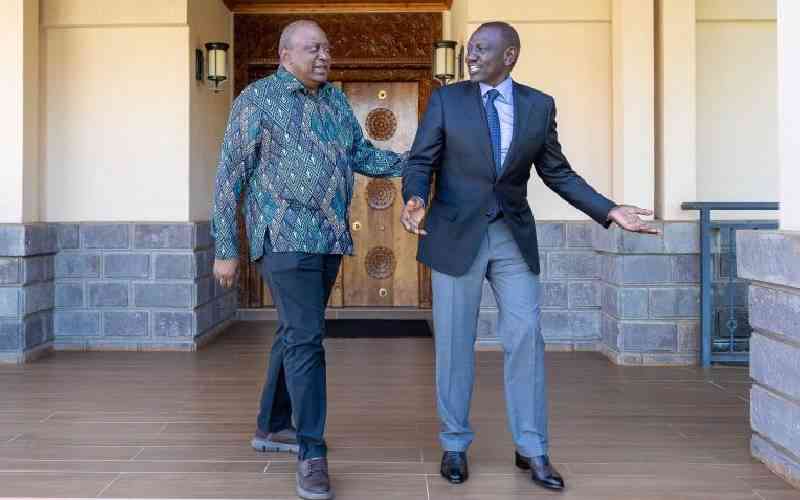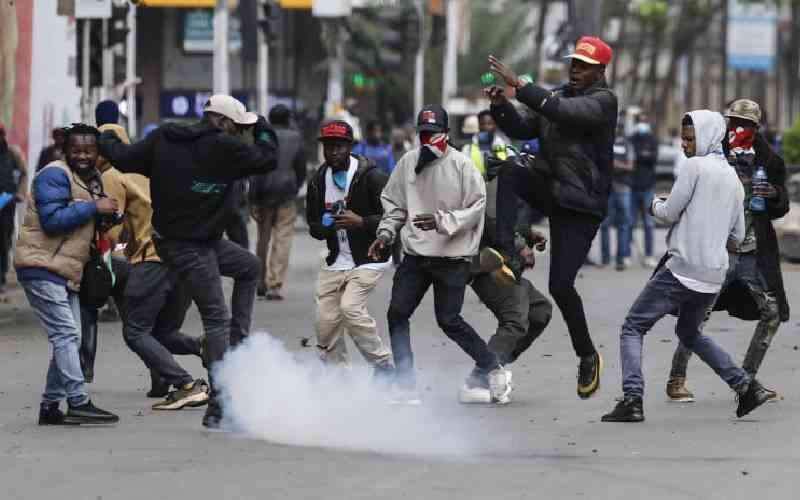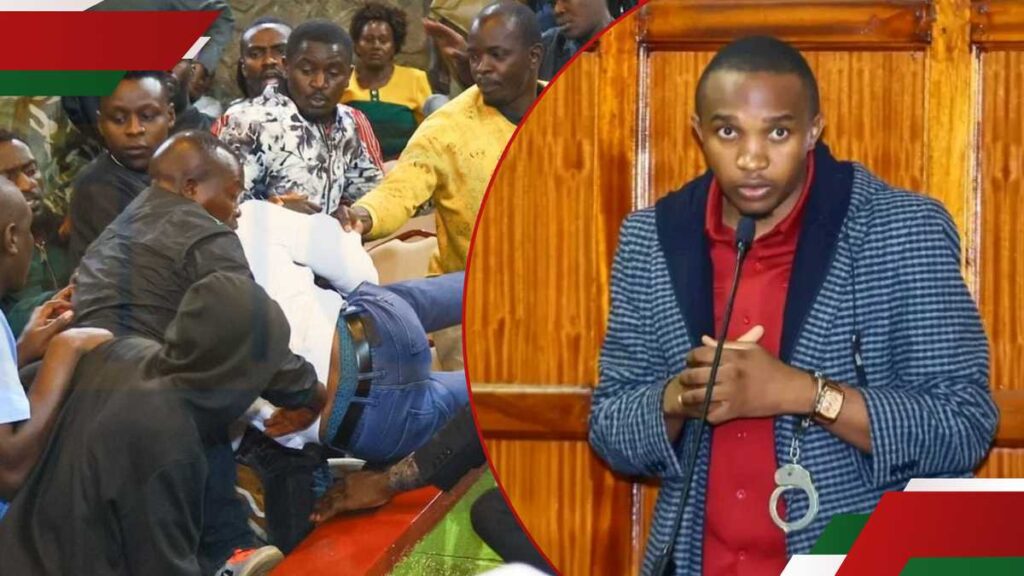Individual police officers and their seniors could face criminal charges for murder, misuse of firearms and arbitrary violation of the law, even as the law enforcers themselves fear for their lives and the future of the law enforcement institution in Kenya.
The shooting and killing of six people by police in Angata Barrikoi, Narok county last week has raised a lot of anger against the officers, despite conflicting reports on what led to the deadly clashes.
Interior Ministry Cabinet Secretary Kipchumba Murkomen said trouble stemmed from tensions between the Maasai and Kalenjin communities over land ownership is the cause of renewed simmering anger, but local people claimed they were ambushed by armed police officers and surveyors who wanted to grab land.
Lawyer Willis Otieno has frequently argued that the relationship between police and civilians has been seriously eroded by the misuse of firearms and it can only improve if they stop shooting against ordinary Kenyans and those implicated in killings taken to court.
“They undermined our constitution by killing innocent people during the Gen Z protests. The police, not the ordinary Kenyan people are a threat to stability. We assure victims that the first order of business by the next government will be to prosecute those who have killed or injured protestors,” says Otieno.
Pundits, experts and ordinary Kenyans are also calling for accountability from police officers and more police service reforms. Ironically the National Police Service (NPS) created through the 2010 constitution was among the most reformed institutions.
Human rights bodies condemned the latest killings, saying over 100 people died last year with many still unaccounted for, while the government and police put the figure of those who lost lives at about 60 people. The 2024 killings have been captured in BBC documentary released when the Narok killings were happening.
The documentary shows how security forces responded to youthful protestors who breached parliament during those protests. Human rights activists are now demanding for action to be taken against the rogue trigger happy police officers and soldiers captured in the footage.
Security analyst and lawyers have warned that police officers, that those who obey unlawful orders to shoot at unarmed protestors and children will individually answer for their actions in the near future.
The Law Society of Kenya (LSK) has also condemned the brutal killing of Kenyans by security officers and called for immediate investigations into both recent and historical cases of extra-judicial executions.
“The sad reality is a symbolic irony of those whose sworn duty it is to preserve the right to life, being the ones proving to be the greatest threat to its full enjoyment,” said LSK President Faith Odhiambo, as she strongly condemned criminal acts by police officers.
The LSK has also expressed disappointment with the Independent Policing Oversight Authority (IPOA), accusing the agency of laxity, because despite many complaints lodged, they have not been investigated. Critics however argue that IPOA lost its teeth and has long been captured by the executive.
In 2014, barely three years after the 2010 constitution created The National Police Service Commission, an independent organ with powers to recruit, train and deploy all police officers including the Inspector of Police (IG), parliament changed the law to allow President Uhuru to nominate the IG.
That led to the appointment of retired IG Joseph Boinnet, after his predecessor David Kimayo was forced to resign, despite that the fact that he had been independently recruited through a transparent and competitive process by the National Police Service Commission (NPSC).
Stay informed. Subscribe to our newsletter
The executive then fully recaptured the NPSC in 2016, when parliament allowed president Uhuru to hire and fire not only the IG but all top police officers by repealing the National Police Service Act 2011 to remove the role of parliament in that process.
All the president needed was to receive a name recommended by the NPSC to appoint and IG and his deputies. Parliament also removed the two thirds gender rule which required one of the two deputies to be a woman. Uhuru and his jubilee government explained that the changes were made to deal with terrorism and related threats after the Westgate attack.
Now however, it is the same members of parliament who are crying loudest against the shooting and killing of people they allege police committed in the Angata Barikkoi skirmishes. Many are asking for police reforms.
Speaking in Eldoret, Nandi Senator Samson Cherargei called for the immediate arrest and prosecution of police officer who killed those six people, describing the incident as a modern day massacre.
His Kericho counterpart Aaron Cheruiyot, who doubles up as the Senate Leader of majority and a close confidant of president William Ruto told IG Douglas Kanja to arrest and prosecute the culprits.
“Watu walipigwa risasi kama wanyama na wanapigwa na police officers wako ambao wewe unasimamia. Hii shida itaisha lini Kenya (they were killed like animals by police officers who are under your command. When will this stop?),” asked Cheruiyot, as he urged Kanja avoid being remembered as a commander who was in-charge of killer squads.
Interior CS Murkomen has defended the officers, praising them for acting professionally as Cherargei and some MPs from Rift Valley urged him to stop police officers from carrying out extra judicial killings.
The outspoken MP also told Murkomen to stop making reckless comments and asked police to desist from using force on unarmed people: “It is unfortunate that 63 years after independence we still have extra-judicial killings.”
MPs have blamed the resurgence of gangs and bloody skirmishes around the country to CS Murkomen’s incapacity to handle the sensitive security docket, and urged him to be careful and measured when making statements touching on the killing of innocent civilians by police.
It appears the pro government MPs are speaking the same language with the opposite political camp led by former deputy president Rigathi Gachagua who warned IG Kanja that he is being misused and will soon be thrown to the kerb like his predecessor Japheth Koome.
“Let me advise IG Kanja because he is our son. Mr Kanja you are being misused like Koome another son of ours from Meru, who was in-charge when many youth died and was thereafter sacrificed. When pressure mounts because of abductions and killings you will also be summoned and asked to resign,” said Gachagua.
It is argued that the executive arm of government has fought to control the police so that it can suppress any opposition to authority like what happened to the Gen Z protests. Police officers themselves also wanted the old order reinstated, because it is the one of the biggest sources corruption money.
Those calling for reforms and prosecution of rogue officers are however not relenting: “The law regarding demonstrations is very clear but police never observe it. There is serious lawlessness within the police service in Kenya,” says Makueni Senator Dan Maanzo.
He has strongly argued that continued clashes and ugly fights between the public and the police could have been averted had the police service remained independent as was outlined in the 2010 constitution.
That is because the law protected the Inspector General of Police from receiving unlawful orders from the Interior Cabinet Secretary or his superiors in regard to investigation of any offence, enforcement of the law and the employment, assignment, promotion, suspension or dismissal of an officer.
Junior police have defended their actions, pointing out that they only act on instructions from their seniors. Failure to do so, they are either reprimanded, transferred to far away remote places or disciplined.
CS Murkomen has assured Kenyans that their safety and security is guaranteed for all citizens, but is that really the case when abductions on the streets by unknown people continues in broad daylight, even as other civilians are now shot in their heads by police officers when securing your land?
Security analyst George Musamali says each police officer will take personal responsibility especially if they acted on illegal instructions to shoot at civilians. The Officer Commanding Police Division (OCPD) has also to explain the operational order he or she issued.
“It is unfortunate that nowadays they just deploy and tell them to apply their training on how to use firearms. If there is no justifiable instance of firing the gun, officers have to decline such orders,” says Musamali.
From his assessment, it appears there was confusion or lack of a command structure without proper procedures in the Angata Barikkoi deployment although an officer who was shot with an arrow had the right of defending himself.
He thinks police officers in Nairobi received intelligence that the local community was preparing to forcefully eject the land surveyors send to demarcate land in Angata Barrikoi land and that is why the officers deployed were heavily armed. Local police bosses in Narok told Governor Patrick Ole Ntutu that they were not aware of the operation.
But with that information, Musamali argues that police could have applied different tactics to defuse tension by engaging in dialogue with local leaders and the population instead of just using the instruments of power and force ordered through the executive arm of government.
“They went there with a mindset knowing that violence would erupt, but was it necessary for them to confront thousands of villagers? Didn’t they have an alternative way of diffusing tension or deescalating when in fact, they were dealing with a dispute that has been raging for decades?” asks Musamali.
Not all police officers are confrontational and reactive because some have been captured on camera, explaining to attentive Kenyans the need for maintaining peace and living together as brothers and sisters, an example made through a viral clip of a GSU captured in Nairobi during 2007 post elections violence.
It means police officers can de-escalate conflict but the problem now, is the level of mistrust between them and Kenyans that is growing bigger and bigger, with none other than CS Murkomen acknowledging that fact.
Reacting to fears expressed by police officers over threats they are receiving from politicians and ordinary Kenyans in their course of duty, the CS regretted that they are being mistreated for doing their work.
“Wanataka kupiga askari. Mtu anakuja hata karibu anakupiga kofi. Hata hakuji kwa siri. Anakuja na cameras ndio supporters wake waone kwamba yeye ni ndume wa siasa na hata amenyanganya police fimbo yake. (A leader comes with cameras threatening to slap an officer so that his supporters can how powerful he is. They even snatch police officers their batons from,” says Murkomen.
The CS expressed confidence in the police, because they have been taught how to use guns and only very few can be accused of misusing them. He also praised them for their humility despite the high levels of provocation, citing a case where one maintained calm despite a civilian allegedly snatched his beret.
Musamali however argues that proper police services can only come through addressing proposal made in past reports by the Waki commission, plus the Ransley and Maraga task forces. Views collected by the Ghai Commission on the Constitution Review in 2002 also adequately covered most concerns.
“All these reports address these issues but we are seeing so many police officers shooting themselves in the head with G3 rifles. Those frustrating reforms want these officers to remain the way they are so they can misuse them. They also want to continue issuing illegal orders that can put them into trouble,” says Musamali.








